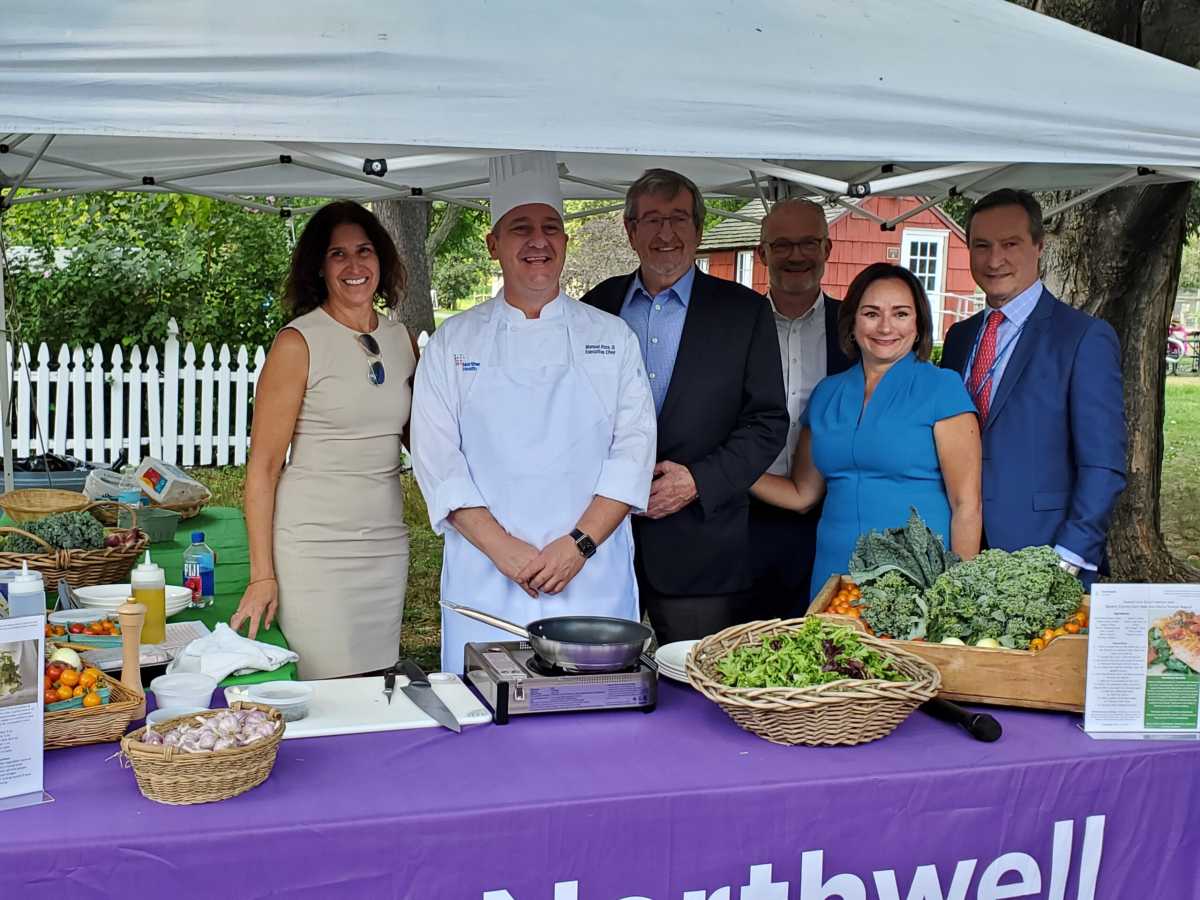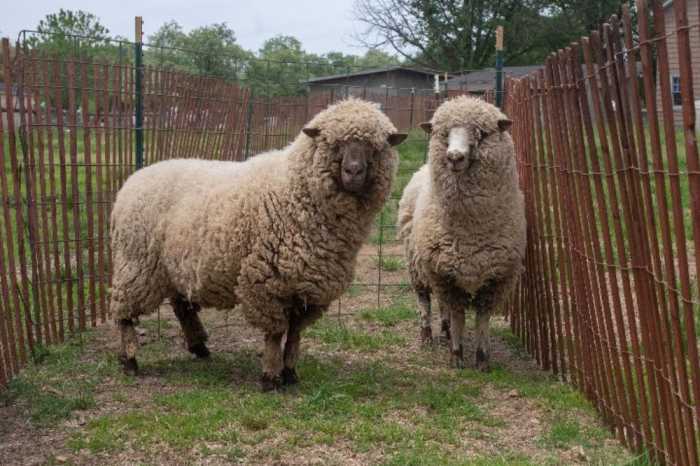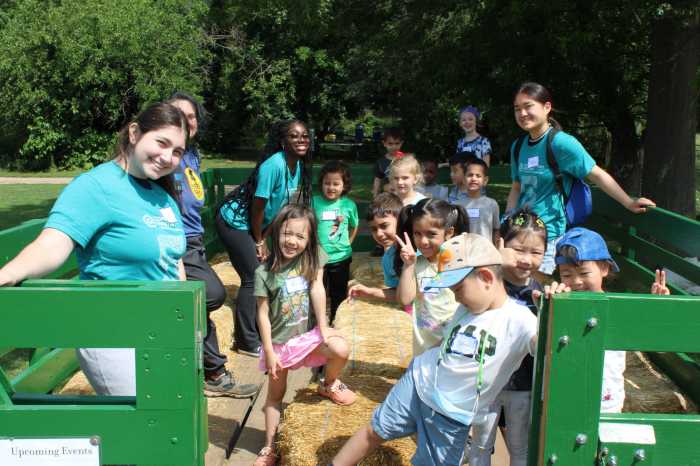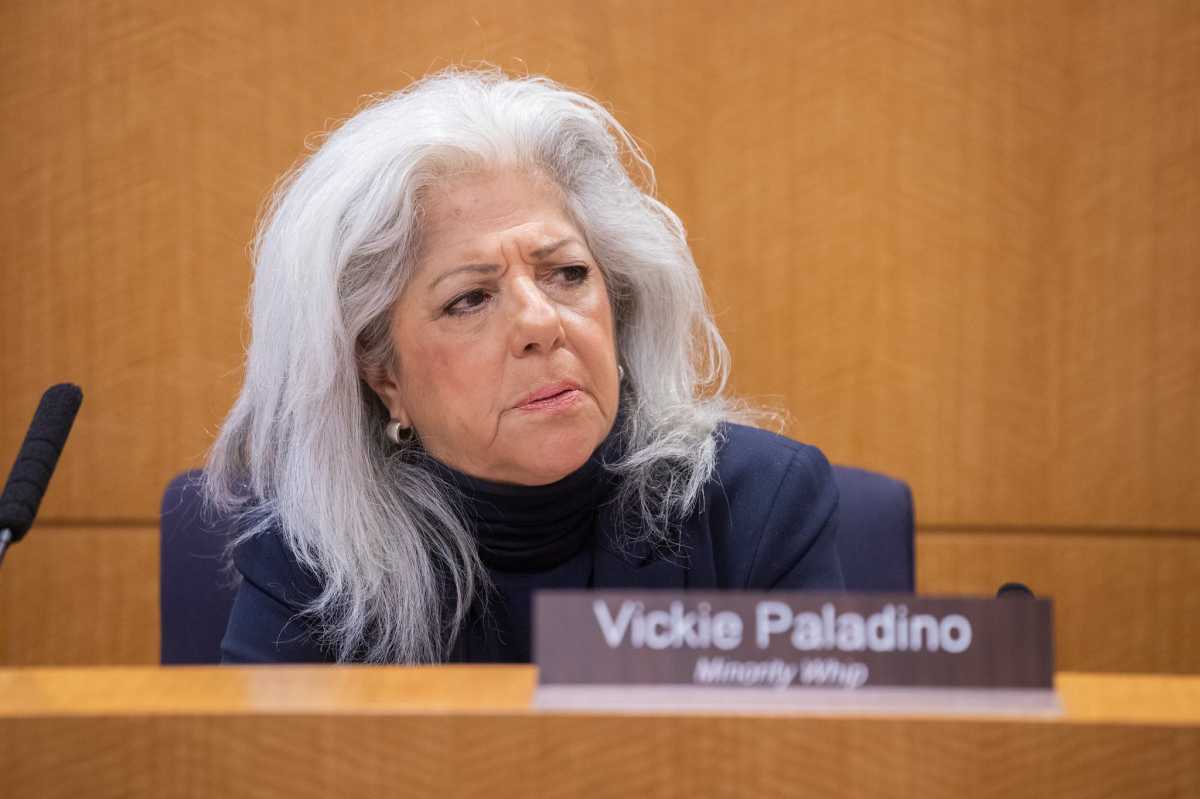The Queens County Farm Museum and Northwell Health on Aug. 2 announced the launch of a weekly farm-to-table wellness program at the farm. The program is meant to bring free culinary education to local communities through the next 12 weeks.
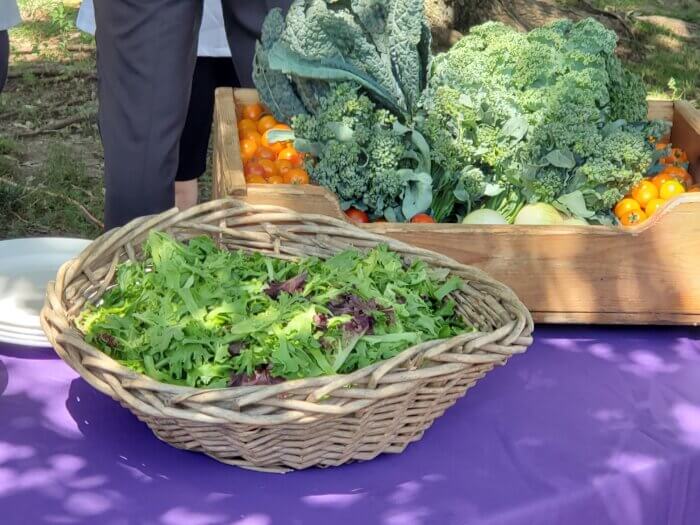
Among those on hand to celebrate the launch of the food-to-table program were Queens County Farm Museum Executive Director Jennifer Walden Weprin, Northwell Health President and CEO Michael Dowling, Northwell Health Senior Vice President and Chief Experience Officer Sven Gierlinger and kids from Commonpoint Queens’ farm camp. Weprin emphasized the importance of serving the community when it comes to this partnership.
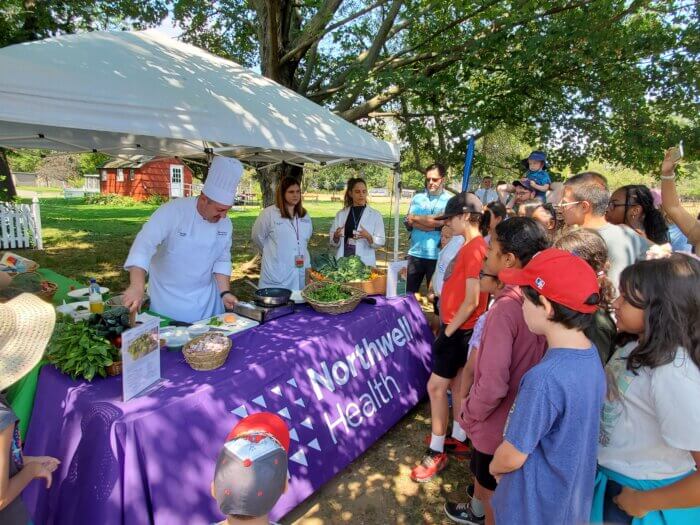
“[The Queens County Farm Museum] tells an incredible story about community through the centuries,” Weprin said. “Where we are today versus where we are in the 1600s, 1700s or even the early 1900. In 1926, Queens was a very agrarian community. Queens farm was the second-largest farm in Queens and the largest-valued in production. Today, we are the largest in New York City and second-oldest in New York state. It always goes back to who our community is and what we do and how we serve the public.”
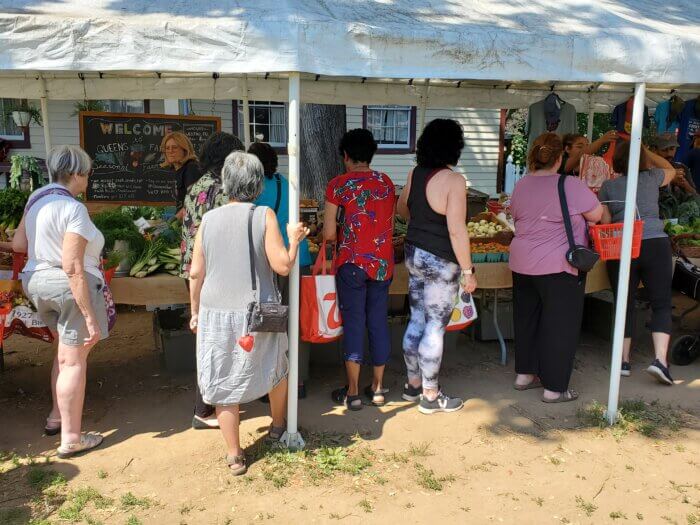
Some of this program’s features include free recipes, cooking demos, tastings, games, giveaways and wellness tips. Northwell Health’s Food and Nutrition Services team curates all of this. Ingredients from the more than 200 varieties of fruits, vegetables, herbs and flowers grown at Queens Farm are showcased for people to take home.
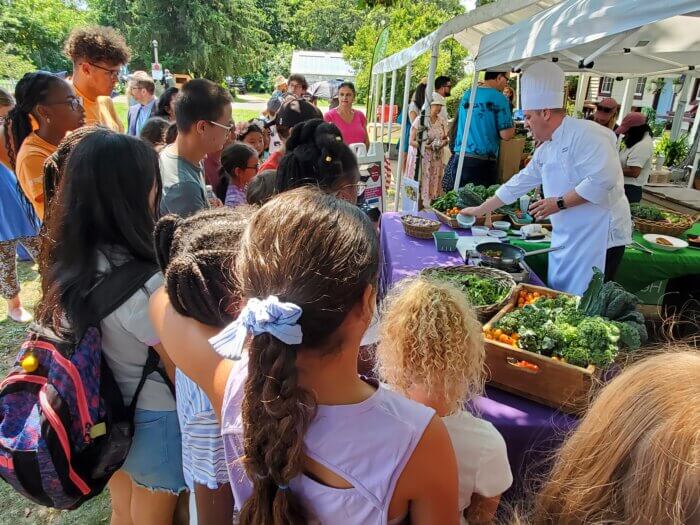
The farm-to-table wellness program is the latest initiative from the partnership between Queens County Farm Museum and Northwell Health. A five-year partnership between the two was announced last October, with the main goal of it being to promote health and wellness from these institutions, located about a mile apart across the Queens/Long Island border. It was also formed to increase access to healthy foods across Northwell Health facilities and local communities.
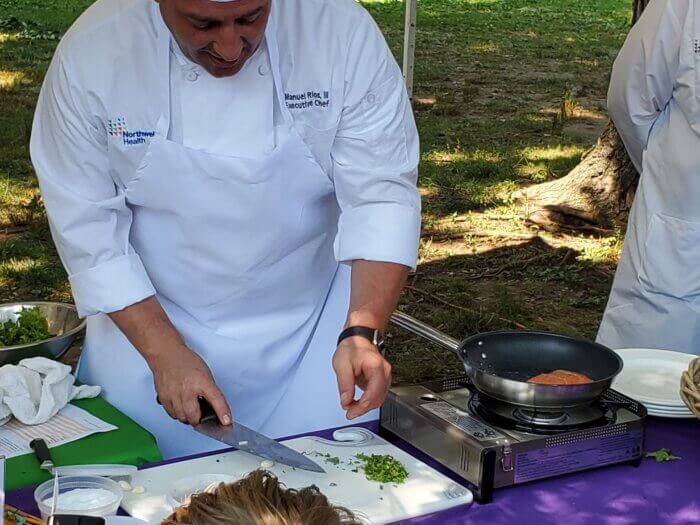
“[This partnership] is very important,” Northwell Health Senior Vice President of Community and Population Health Debbie Salas-Lopez said. “It is so close to many of our hospitals. There are so many opportunities for our community to learn about farming, eating healthy, healthy habits and many other things. This is a living learning lab to teach about nutrition and healthy eating. We see this as an extension of what we do in the community.”
The food-to-table wellness program provides opportunities for the next generation of New Yorkers to learn from both New York City’s only continuous working farm and New York State’s largest private employer and health care provider in an interactive and engaging environment. In addition to offering a teaching kitchen, the program also involves registered dietitians from Northwell Health providing recommendations on how to include the farm’s healthy produce into healthy home-cooked meals and more.
“I think this is an extraordinary partnership and extraordinary opportunity,” Dowling said. “The farm is so close to our main hospitals. To be a partner with a place that’s been around since 1697 and growing organic food for the community gives us the opportunity to enter a long-term relationship with them. This is also a wonderful opportunity to work with them in providing an educational program for the community about the importance of diet and nutrition. This is a wonderful asset for the community.”
Dowling and Gierlinger also said that the kitchen food at the Northwell hospitals in the area will be made from ingredients and food at the Queens County Farm Museum. They believe this will help to benefit the patients at these facilities, as well as the staff.
“We at Northwell have put so much emphasis on food as a foundation of health,” Gierlinger said. “If everybody would live like this and eat like this, we would have a lot less patients in our hospitals with chronic diseases. Our goal is to support and help the community.”

